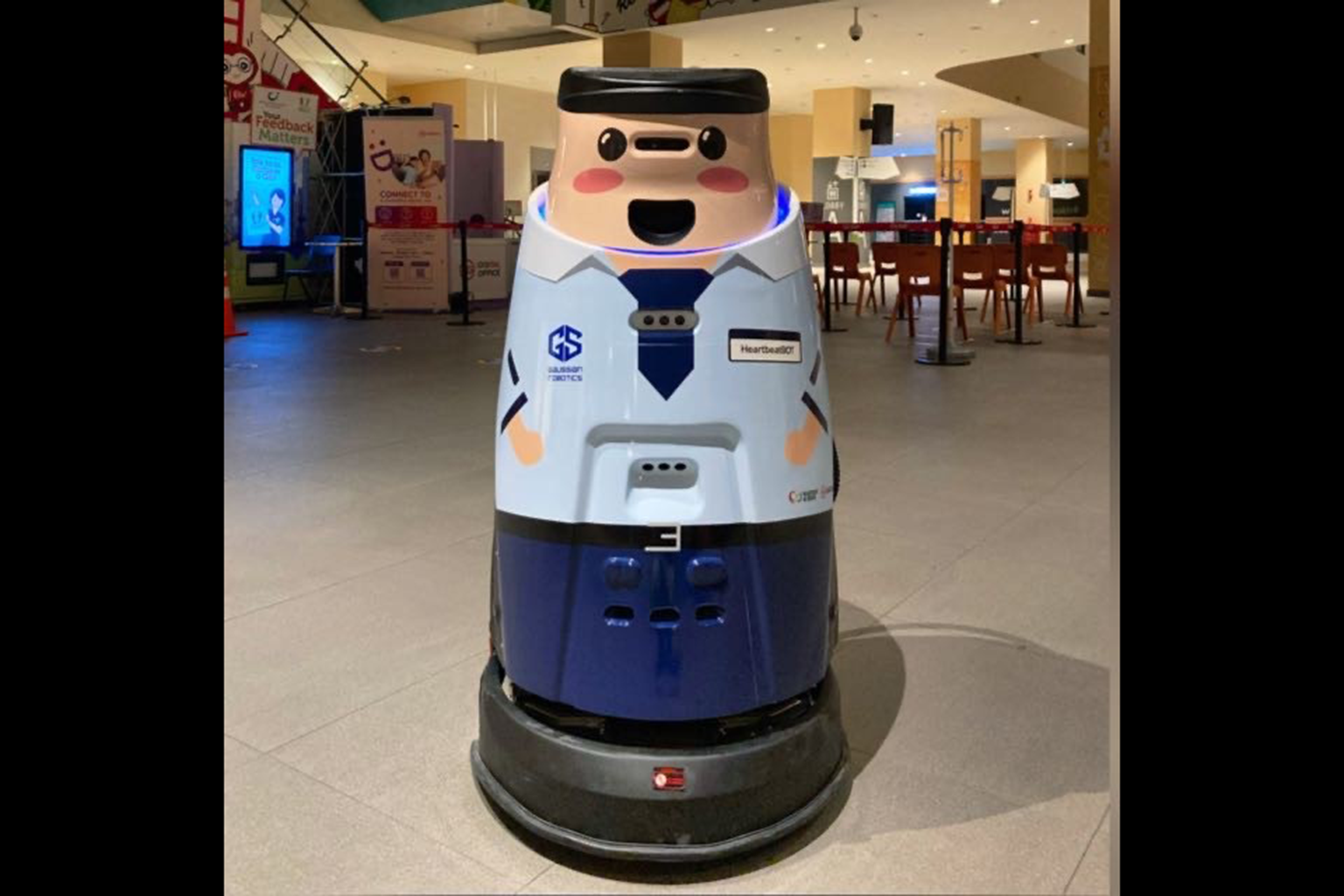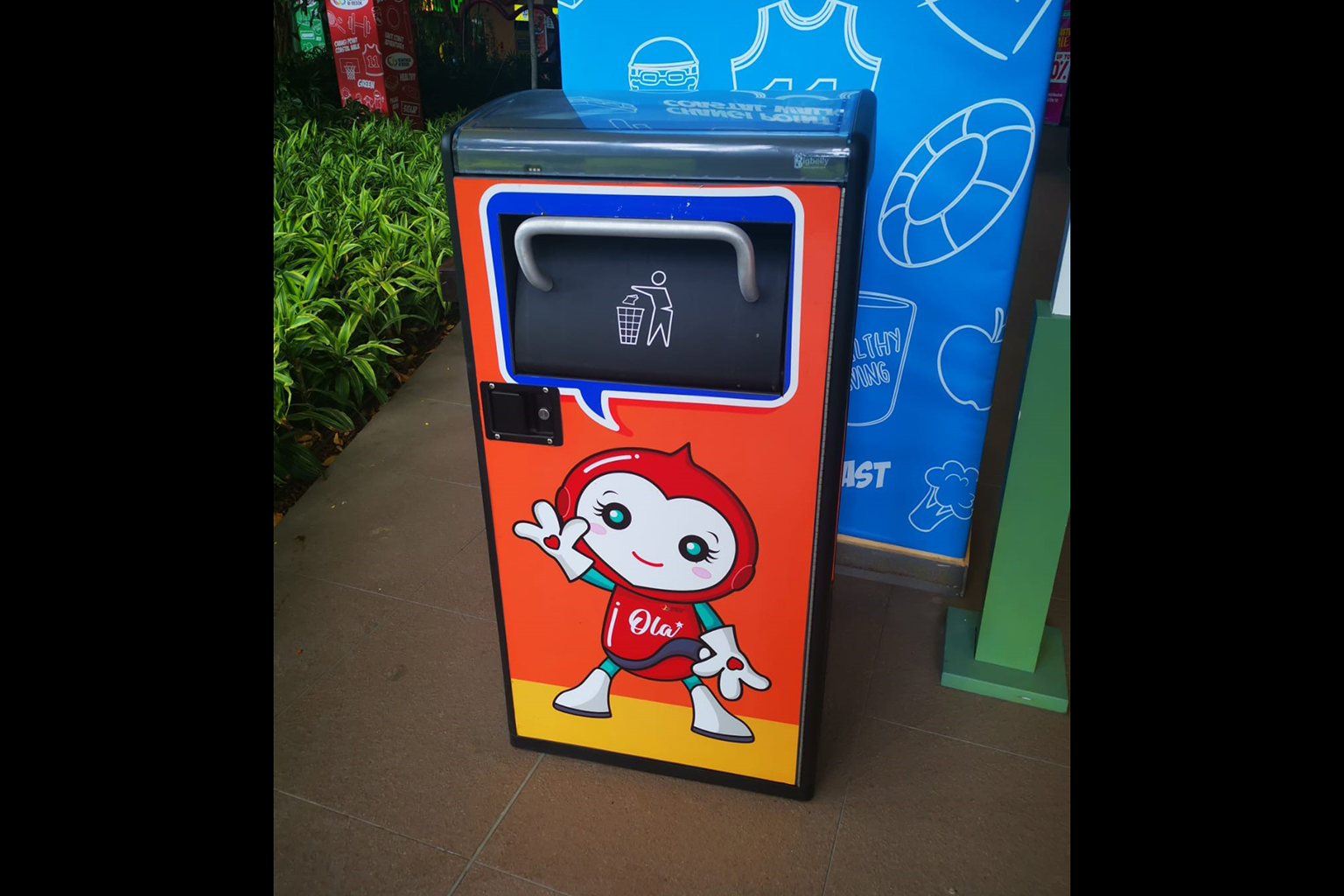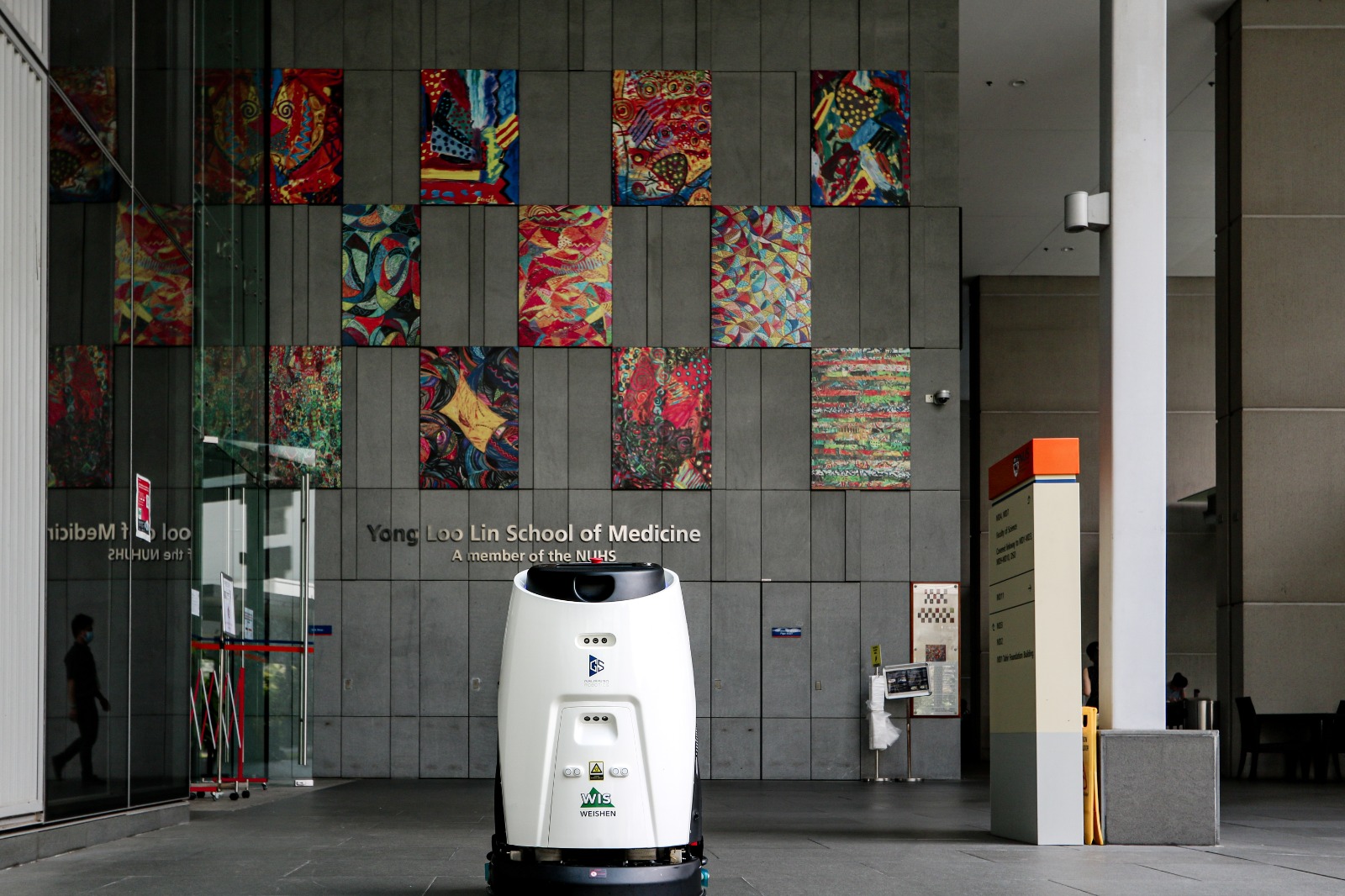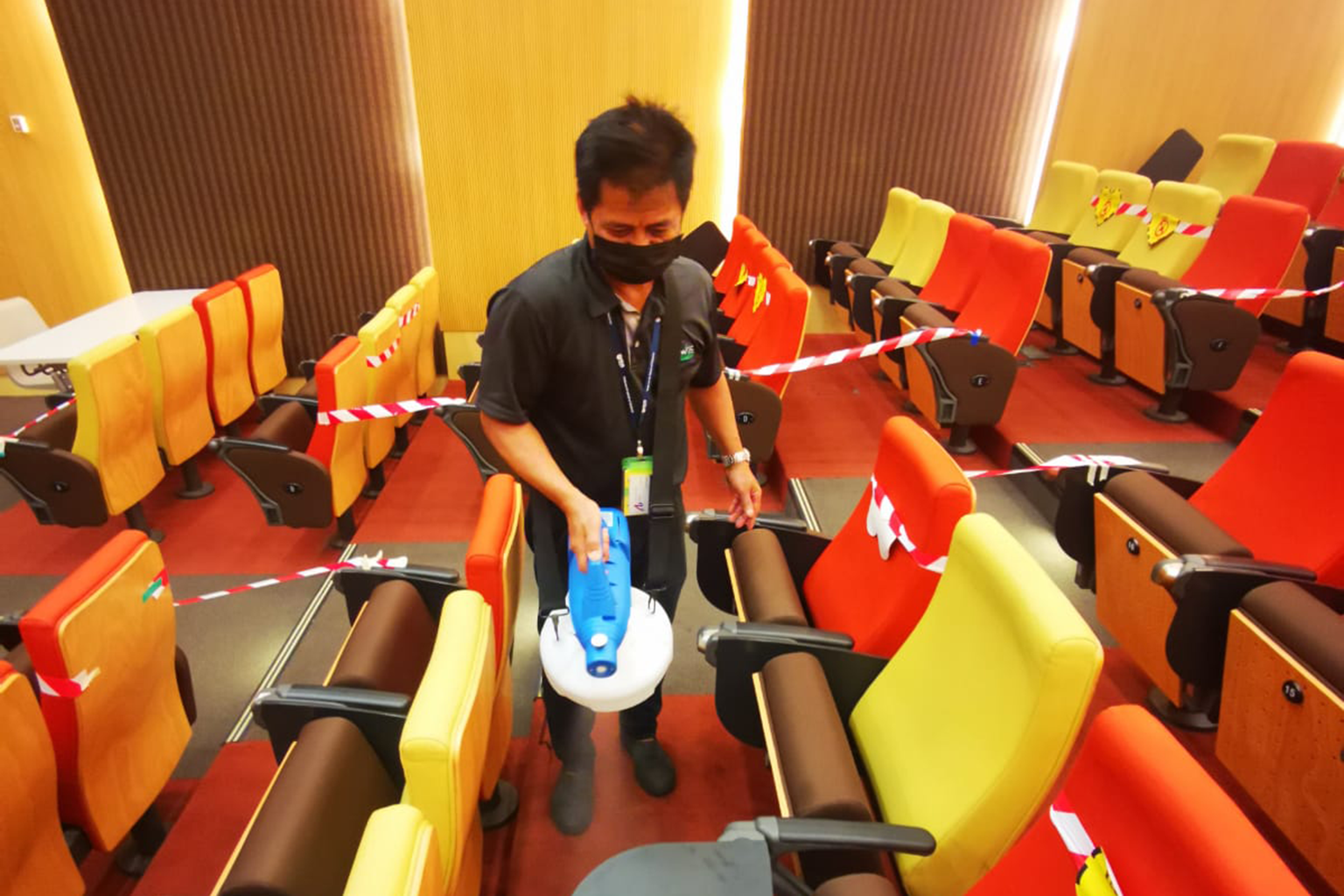BRANDED CONTENT
Smart cleaning to keep Singapore spick and span
NEA’s INCUBATE Partnership Programme promotes the use of new, productive solutions to transform the environmental services industry and redesign jobs

With the help of smart technology such as the HeartbeatBOT (pictured) used in community hub Heartbeat@Bedok, Singapore’s environmental services workforce is able to perform their tasks more effectively and productively. PHOTO: HEARTBEAT@BEDOK
Follow topic:
At Heartbeat<span>@</span>Bedok community hub, environmental services (ES) employees have been using state-of-the-art technologies to aid them in their tasks to increase their efficiency.
The HeartbeatBOT, for example, automates the task of regular floor scrubbing, enabling cleaners to devote more time to wiping down high-touch points such as door handles and escalator handrails - a necessity in this Covid-19 period.
It also assists with security-related duties by reporting suspicious loiterers and unattended bags, and can be used to broadcast safe distancing messages.

Over the past few years, the hub has trialled and deployed smart compactor litter bins and other advanced solutions to help ease the daily workload on the ES workforce and free them up for more productive tasks.
These smart compactor litter bins alert cleaners when the bins are almost full, so that they can be emptied promptly and only as needed. Before the smart technology was installed, cleaners had to check the bins every four hours.
Investing in tech and people
Heartbeat<span>@</span>Bedok developed the solutions under the National Environment Agency's (NEA) INnovating and CUrating Better Automation and Technologies for Environmental Services (INCUBATE) Partnership Programme.
The Programme is an initiative of the Environmental Services Industry Transformation Map launched in 2017, which aims to drive innovation, promote greater adoption of technology, improve skills, raise productivity and seize opportunities overseas.
As part of the programme, NEA works with partners to identify and solve challenges faced in ES delivery at their premises. Partners co-develop and trial solutions, and share best practices and learning takeaways. The programme currently has 21 partners and has carried out 46 trials in transport and community hubs, commercial properties and integrated attractions.
Mr Darren Teng, Heartbeat<span>@</span>Bedok's senior manager in facilities management and operations, says that the cleaning and surveillance robots and smart compactor litter bins have helped increase its ES workforce's productivity by up to 30 per cent.
"With our premises spanning seven storeys and 43,590 sq m of floor area, our cleaning crew could be overwhelmed managing ad-hoc cleaning tasks, such as cleaning up spilled drinks and clearing overflowing bins, on days with high human traffic."
He adds: "Adopting technology and innovation has helped us improve our cleaning service standards and operational efficiency."
The hub has also changed the way it contracts for cleaning services - from a headcount-based model to one that is outcome-based. This not only allows for more flexibility in manpower deployment - which, in turn, helps improve operational efficiency - but also enables organisations to innovate and develop new technology and solutions.
After joining the INCUBATE Programme, the National University of Singapore (NUS) also rolled out cleaning robots and other technologies.

It also adopted an outcome-based contracting model for cleaning services, which "made big shifts in the University's mindsets, as well as its processes and procurement methods", says Mr Chew Chin Huat, NUS' senior director (Campus Operations & Maintenance).
He explains: "Previously, we thought that clean premises could only be achieved with a huge amount of manpower to do the cleaning, as well as a large number of staff to oversee it. When we learnt more about the outcome-based contracting model from NEA, we were able to review our processes and now leave the planning and management to our partners, to bring about the desired performance outcomes."

Both Heartbeat<span>@</span>Bedok and NUS have also invested in upskilling their ES workforce by training them in using smart devices in their day-to-day tasks.
Innovating to transform
With an ageing workforce, Singapore's ES industry faces several manpower challenges, notes Mr Dalson Chung, director of NEA's Industry Development and Promotion Division.
Based on data collected in 2016, the average ages of the resident workforce in the cleaning, waste management and pest management sectors are 60, 49 and 38 years old, respectively.
"Transforming the industry to be more productive is critical to ensuring continued delivery of ES for a clean and liveable environment in Singapore," he says.
By adopting smart technologies, ES firms can upskill their employees, enhance existing jobs, create new high value-added jobs, as well as attract a younger generation to the industry.
He summarises: "By injecting new ideas and innovative thinking to continually improve and redesign work processes, we can change the image of the sector from one that is low-skilled to one that is highly skilled, productive and resilient."
Visit this website to find out more about NEA's INCUBATE Partnership Programme.
Visit this website to find out more about NEA's INCUBATE Partnership Programme.

